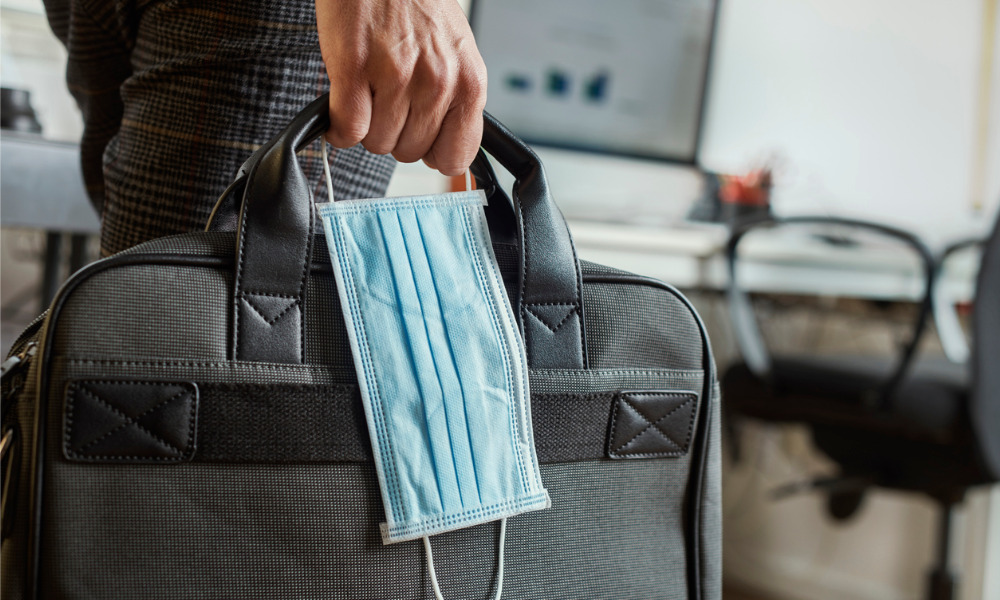
Continued evolution impacts personal injury, disability claims says ADR Chambers' Cindy Winer

This article was produced in partnership with ADR Chambers.
Mallory Hendry of Canadian Lawyer sat down with Cindy Winer, mediator and investigator at ADR Chambers, to discuss top considerations in a claims landscape shaped by the COVID-19 pandemic.
As businesses across the country continue to evolve with the ebb and flow of the COVID-19 pandemic and associated restrictions, it’s critical that lawyers on both sides of the table consider how workplace changes may impact the restrictions and limitations imposed on their clients during a personal injury or long-term disability (LTD) claim.
“Ask yourself how your own practice has changed, and it might help you consider some of these issues,” says Cindy Winer, mediator and investigator at ADR Chambers. “We need to start wrapping our minds around the changing face of the workplace and the ways in which it could potentially impact parties in litigated personal injury and LTD claims.”
As a mediator, Winer’s role is to facilitate exploration of both sides’ perspectives to try and reach resolution. By calling attention to how changes in the workplace can affect the way both sides of the table approach their case – and play a role in the outcomes – legal counsel will come to mediation prepared to best serve their clients. The first thing to consider is what’s happened to the person’s role over the course of the pandemic. Given the fact many businesses didn’t survive or were forced to downsize, do they even have a role to go back to? Regardless of their abilities, how have the actual performance expectations and duties of the role changed? Is it now a hybrid work situation or fully work from home? How will the various changes make it more difficult, or easier, for a client to meet the test of being able to return to work? There are implications for every scenario, Winer notes, and each side might have a different argument.
“Things are changing even as we speak,” she says. “Lawyers need to think about how some of these changes could positively or negatively impact their client and their abilities.”
One example is somebody who was involved in a motor vehicle accident. On top of physical injuries, s/he also developed a fear of driving that contributes to her/his inability to return to her/his place of employment. If her/his role shifted to work from home during the pandemic, a defence lawyer might say that the person had been unable to drive to work but now doesn’t have to. Or, with respect to physical limitations, because s/he is working in her/his home and won’t be confined to an office, they might suggest s/he can take more frequent breaks and perhaps do more than s/he says she can.
While it could be agreed that these changes will have a positive impact, the other side of that argument could be that as a result of her/his injuries s/he needs modifications – like an extra-large or second computer monitor and/or a stand-sit desk. If the role is now performed in her/his house, who is going to pay for those things? Or perhaps her/his home is small and can’t accommodate those additions, so working from home poses more challenges than it alleviates.
While there are no answers, there are many things to consider, Winer notes, and both defence and plaintiff-side lawyers should consider how they’ll address these issues going forward.
Businesses are still evolving, and the face of workplaces and workspaces are in flux. Even after pandemic restrictions are fully lifted, because companies have found efficiencies things may not ever go back to the way things were before 2020 – and before a person’s personal injury or disability claim began.
“We’ve yet to feel the full impact of these changes: the evolution hasn’t finished yet and we don’t know where it’s going to go,” she says. “It’s about turning your mind to these issues when working on a case – at any point in time, whether it’s as you’re taking it on, in the prep stage or during the mediation stage – and considering these factors.”
Cindy Winer mediates long term disability, personal injury, employment, and property and casualty disputes. Her areas of expertise include insurance, employment, workplace, franchise and commercial disputes. Cindy has a strong background in claims management, career coaching and consulting, to help people successfully resolve their disputes.